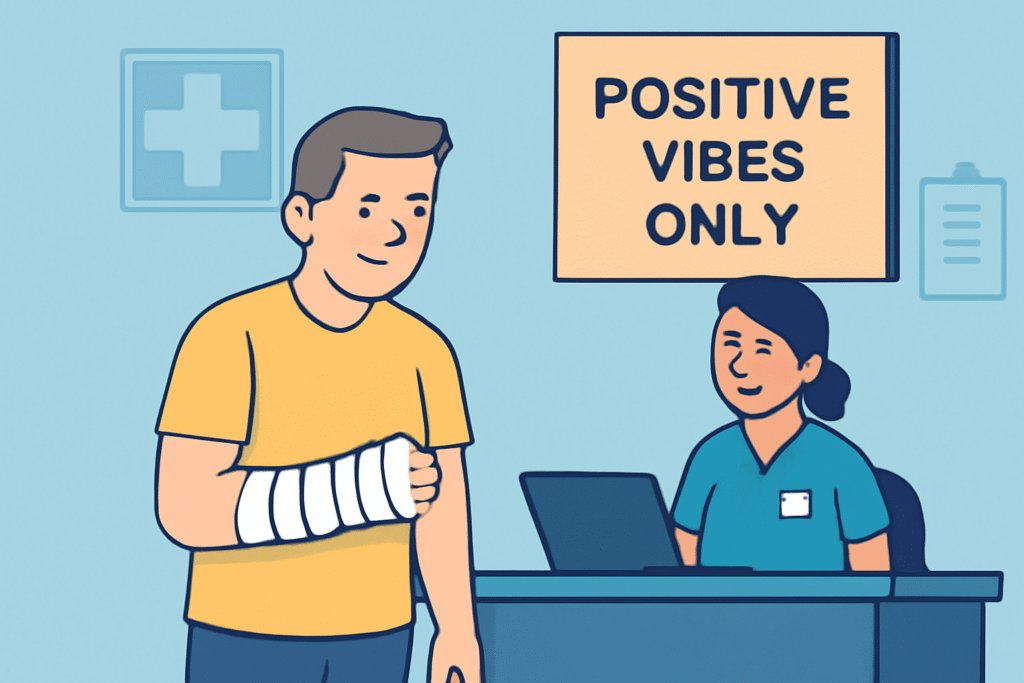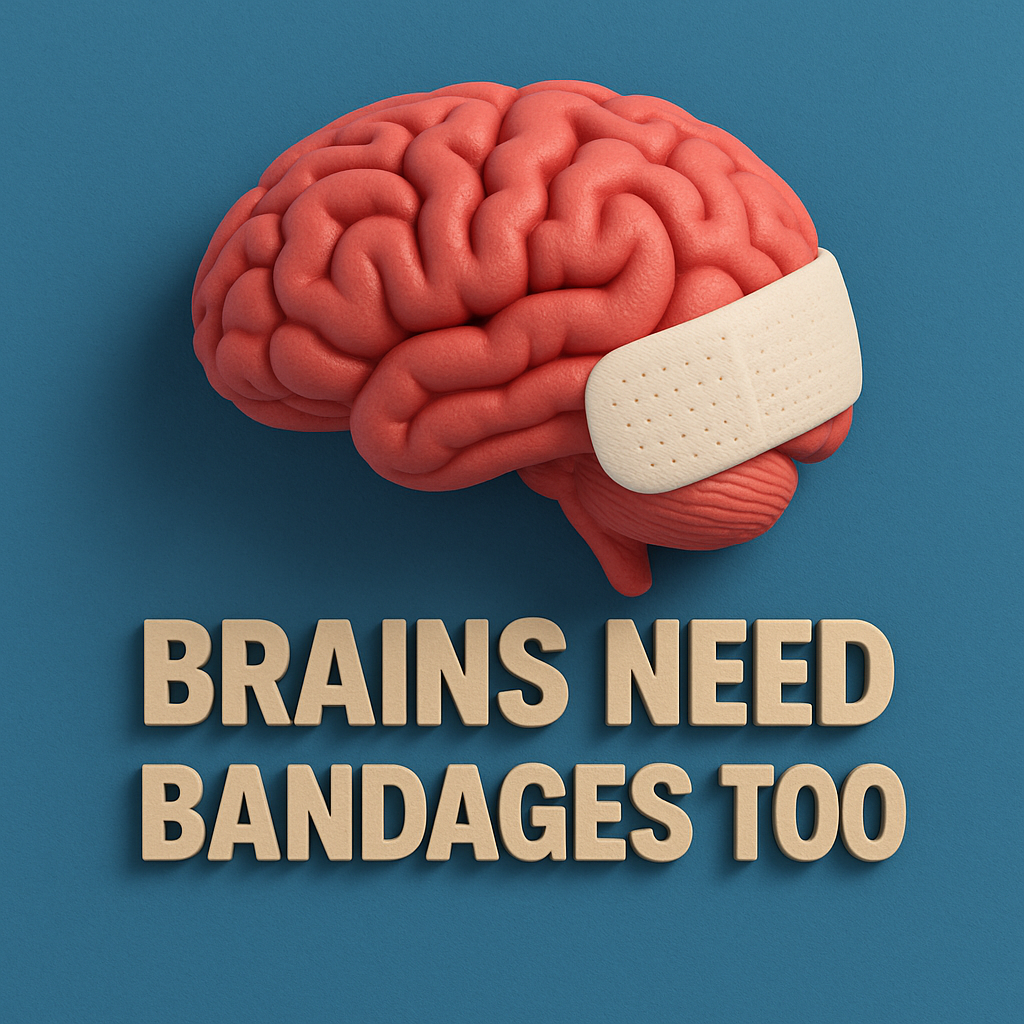I am a woman with a disability. I use my chair like a boss, I work as a counselor, and yes, sometimes my mental health needs attention. That part should not surprise anyone. Bodies and minds live in the same house. Water leaks from one floor to the next.
Still, I am often told to “stay positive” and labeled “so inspirational” for, you know, buying vegetables or sending emails.
What I See As A Counselor
I meet students who cannot get accessible counseling rooms. I meet professionals who risk losing promotions if they disclose therapy. I meet parents who hide panic attacks because relatives say it invites “bad energy.” I meet wheelchair users with untreated PTSD from medical trauma who are told to “think positive” instead of being offered trauma-informed care.
And these are not rare stories. My clients with disabilities hear the same thing. Smile more. Be strong. Radiate resilience like it is a phone flashlight. No one asks if the battery is at 3 percent.
Picture this: You’re feeling overwhelmed, anxious, or maybe even panicking, and you walk into a medical facility, hoping for some help. Instead of getting the urgent care you need, you’re met with:
“Have you tried thinking positively?”
That’s right. Instead of treatment, you’re being told to relax and just “get over it simply.”
It’s almost like we’re living in two worlds: one where physical illness is treated immediately, and one where mental health is minimized.
The Disconnect: Physical vs. Mental Health
If you were to walk into the ER with a broken leg, nobody would say,
“Well, just stay positive, and maybe it’ll heal on its own!”
No. You’d be treated with urgency, given a cast, and if necessary, surgery. So why does the treatment for mental health problems differ so drastically?
Imagine someone experiencing an anxiety attack or depression, walking into a clinic or a hospital. Instead of getting immediate care, they’re told to “just relax” or “work through it.” Mental health issues are often seen as something that should pass or something to “handle privately.” But why are we treating a panic attack as less urgent than a heart attack?
Where’s the Urgency for Mental Health?
When someone has a heart attack, it’s immediate care. They get rushed into an emergency room, given medication, and monitored closely. But when it comes to someone experiencing a mental health crisis, it’s often downplayed or brushed aside.
“Take a deep breath.”
“You’re just stressed.”
No one tells a person having a heart attack to “work through it” or “relax.” So why is that the case when it comes to mental health?
Treating the Mind Like the Body
Imagine if we treated mental health with the same respect and urgency we give physical health.

We would never tell someone with a broken arm to just “stay positive” and expect the bone to heal on its own. Instead, we’d rush them to the hospital, give them a cast, and provide the necessary care. Mental health issues need that same level of attention.
The Power of Compassionate Care
What if, instead of brushing mental health aside, we acknowledged that our minds need care just as much as our bodies do? What if we stopped assuming that “toughing it out” is the solution?
We would never treat a hemorrhage with meditation alone. We would never call insulin a crutch. We would not tell a person in septic shock to “choose joy.” Yet this is how mental health often gets treated, especially for disabled folks. We are praised as brave while being denied the basics. We are told to glow while we are running on emergency power.
Instead of telling people to “relax” or “snap out of it,” we could encourage them to seek professional help, offer support, and remind them that mental health care is just as essential as a visit to the doctor when we have a physical ailment.
A World of Equal Care
Imagine a world where seeking therapy is as normal as visiting the dentist. A world where saying, “I need help” is met with the same understanding and compassion as saying, “I broke my leg.”
- A person in therapy would be encouraged to take that time, not be seen as “weak.”
- People would be given mental health days off from work without shame, just like sick leave for a cold.
- Society would stop treating people with anxiety, depression, or other mental health struggles as overreacting. Instead, they’d get support, understanding, and effective treatments.
Breaking the Stigma
Until we start treating mental health with the same urgency and seriousness we give physical health, the stigma will continue. We need to change the narrative. Mental health is not something you “just get over.” It’s a real issue, and it needs to be treated as such.
Final Thoughts
If our minds got the same care as our ankles, we would be better equipped to handle life’s stresses, pressures, and mental health challenges. It’s time we stop treating mental health as a secondary concern. It’s not something to push through. It’s something that needs care, support, and treatment.
So next time someone tells you to “think positive” when you’re struggling mentally, kindly remind them:
“A broken mind needs care, just like a broken leg.”
What Respect Really Sounds Like
- “I believe you.”
- “Support is available, and you deserve it.”
- “Taking care of your mind is taking care of your life.”
- “You do not need to be anyone’s inspiration to be worthy of care.”
Healing the mind is as real as healing the body.
Closing the Loop
When someone says they are struggling, the correct response is not:
“Be stronger.”
“Think happy thoughts.”
“You always cope so well.”
The correct response is care.



